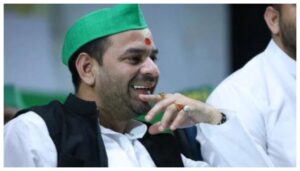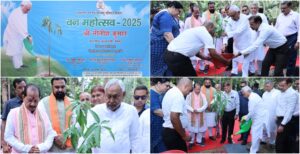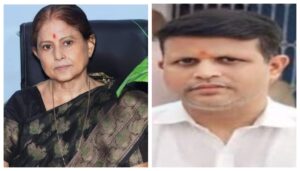National Horticulture Conference Concludes in Bihar Agricultural University With Vision for 2047 and Call for Innovation

Sabour: The valedictory session of the National Conference on “Rapid Development of Horticulture for Livelihood Improvement in Amritkal” concluded on Friday at Bihar Agricultural University (BAU), Sabour, bringing together eminent scientists, educationists, policymakers, and progressive farmers from across the country.
Organised as part of the 17th Swadesh Prem Jagriti Seminar, the three-day event focused on outlining a transformative strategy for India’s horticulture sector leading up to 2047, the centenary of the nation’s independence.
The closing session saw participation from notable dignitaries including Dr H.P. Singh, former Deputy Director General (Horticulture), Dr A.R. Pathak, former Vice Chancellor of Junagadh Agricultural University, Dr J.S. Parihar, former ISRO official, Dr T. Janakiram, former Vice Chancellor of Dr YSR Horticultural University, and Dr Harshvardhan Chaudhary from IARI, New Delhi.
In his address, Dr Chaudhary presented key takeaways from the 14 technical sessions, which included 166 research papers and 111 lectures. He emphasised that to meet the target of 780 million tonnes of fruit, vegetable and flower production by 2047, India will need to adopt precision farming, climate-smart technologies, and expand cold and value chains.
Speakers across sessions highlighted the need for water-efficient farming, sensor-based agricultural tools, and artificial intelligence to boost productivity. There was strong advocacy for a circular resource model to reduce post-harvest losses and bolster bioeconomy practices.
Dr Janakiram urged farmers to transform themselves from mere producers to processors and announced winners of Best Oral and Poster Presentation Awards.
Addressing the gathering, Disaster Management Minister and conference guest Mrs Bimla Singh honoured progressive farmers from states including Gujarat, Maharashtra, Odisha, Uttar Pradesh and Bihar with the ‘Amit Udyan Ratna Award’. Special honours such as the CHAI Pratibha Samman and prizes for a mango-eating competition and the Kisan Gyan quiz were also distributed.
In his presidential address, Dr H.P. Singh urged all stakeholders—farmers, scientists, and policymakers—to always be prepared with multiple action plans to future-proof India’s horticulture sector.
Dr Fiza Ahmed, organising secretary of the event, and Dr D.R. Singh, Vice Chancellor of BAU, Sabour, were lauded for their leadership in transforming the university into a hub of agricultural innovation and extension.
The conference concluded with a strong commitment to align Bihar’s and India’s horticulture policy with global sustainability goals and local climatic conditions.





